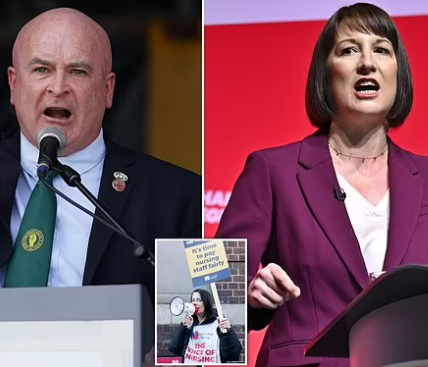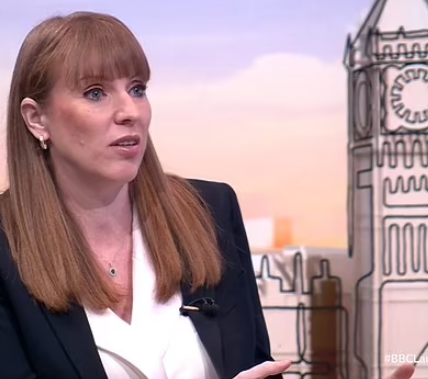Labour paves the way for four-day week as Angela Rayner drops opposition to council’s shorter hours scheme_nhy
Labour have seemingly paved the way for the introduction of a four-day work week after the government dropped opposition to the implementation of the much-debated policy.
The then-ruling Conservative Party had voiced its objection to the changing of working patterns in 2023, but last month Deputy Prime Minister Angela Rayner told the House of Commons that a four-day week would be ‘no threat to the economy’.
Tory objections had arisen following South Cambridgeshire District Council’s trialing of the policy. However, having continued its implementation past the trial’s end date in March this year, Labour have decided not to reissue the disapproval notice previously served by the Conservatives.
The news comes as London‘s transport authority is understood to be considering proposals from tube drivers over the enactment of a 35-hour four-day work week.
A letter received by the Cambridgeshire authority on Friday from the Ministry of Housing, Communities & Local Government said that councils would be ‘rightly responsible for the management and organisation of their own workforces’.

Deputy Prime Minister Angela Rayner (pictured) has voiced her belief that a four-day work week would be ‘no threat to the economy’

South Cambridgeshire District Council had continued on the implementation of the four-day work week following an initial trial period
Conservative ministers had voiced concern with South Cambridgeshire District Council’s four-day work week in formal notices issued in both 2023 and 2024.
These concerns included fears that the new working arrangements could impact its delivery of the Best Value Duty and that the council would be unable to ensure it is effectively supporting the continuous betterment of the local area should its capacity be reduced by up to a fifth.
In the new letter issued by the Deputy Director of Local Government Stewardship Max Soule, it was revealed that whilst the government does not harbour an official policy of instating a four-day week for five days of pay, that it does recognise the rights of independent employers to manage their own workforces.
The leader of South Cambridgeshire District Council, councillor Bridget Smith, said that her authority had provided government with ‘around 200 pieces of raw data every single week’ in support of the four-day week’s productivity and viability.
Speaking to the results of her council’s trialing of the reduced working week, Councillor Smith stated: ‘The results from our four-day week trial painted a really positive picture, with many of our services improving.
‘This was along with the hundreds of thousands of pounds of taxpayer money we saved, improved recruitment and retention plus incredibly significant positives around health and wellbeing’.
The council added that included in staff’s revised terms is the expectation that 100 per cent of their previous workload would be carried out in 80 per cent of their contracted hours for 100 per cent of their pay, with no changes to council opening hours.

New Conservative Party leader Kemi Badenoch last month questioned the acceptability of a four-day work week in the House of Commons

Members of Aslef were due to walk out on Thursday and again next Tuesday – which would have crippled Tube services. But the industrial action was called off after a new offer was received from Transport for London
New Conservative Party leader Kemi Badenoch last month questioned the acceptability of a four-day work week, but this sentiment was quashed by the Deputy Prime Minister, who told the opposition that she would not ‘dictate’ to councils how they run their services.
Ms Rayner went on to state: ‘We work with councils and I think (Ms Badenoch) should be able to work out that flexible working is no threat to business, no threat to the economy, in fact, it would boost productivity’.
The four-day work policy received a further boost this week when it emerged that Transport for London (TFL) would work towards the Aslef Union’s proposal of a reduced work week for tube drivers in a bid to avert the mass striking of staff.
In a letter seen by the BBC, TFL has stated its intention to set out a ‘proposal of delivering an average four-day working week’ by January.
A TFL spokesperson reacted by saying: ‘Discussions are ongoing and there will be no reduction in contractual hours.
‘As with any proposal, there are still details that need to be worked through and any changes would need to be mutually beneficial, preserving or improving the reliability of our service for our customers and improving efficiency’.



